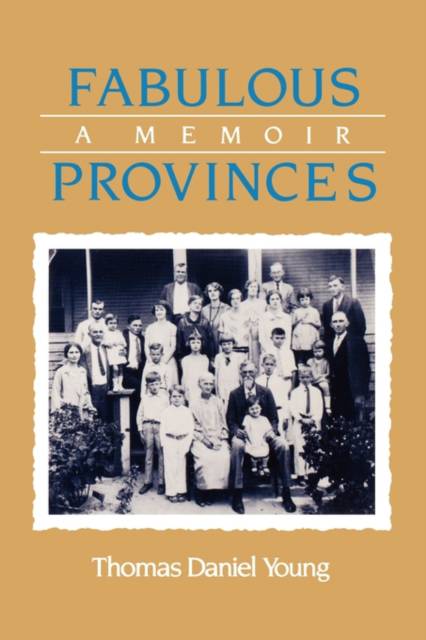
- Afhalen na 1 uur in een winkel met voorraad
- Gratis thuislevering in België vanaf € 30
- Ruim aanbod met 7 miljoen producten
- Afhalen na 1 uur in een winkel met voorraad
- Gratis thuislevering in België vanaf € 30
- Ruim aanbod met 7 miljoen producten
Zoeken
Omschrijving
In this affectionate memoir, one of the principal scholars of southern literature reflects on his lifelong study and offers his view of how the great writers of the South chanced to emerge during the worst of economic eras in that region. Though he sees this phenomenon through the lens of his own experience in Mississippi, he brings into focus the questions so often asked by literary critics and historians: "Why did the American literary renaissance between 1920 and 1940 occur in the South?" Young provides a fresh answer. His own background in a Mississippi hamlet, his growing up as the son of a country doctor, and his awakening to the riches of his heritage in an economically backward region cause him to see in himself parallels throughout the South that produced the remarkable literary outburst. A heritage like his own that arose from deeply felt human qualities rather than from secure economic conditions he feels was principally responsible. Thus, Fabulous Provinces is Young's reflection upon a long career which is filled with representative events, episodes, and persons who, as he feels, "accurately portray social, economic, and cultural developments during the first seven decades of this century. I have tried to present, from the point of view of a first-person narrator, not always the author, what it was like to grow up and live in Mississippi." By emphasizing that the quality of life in that representative state eclipsed the low plane of living, he suggests why the South became a literary center of America from 1920 to 1950, producing William Faulkner, Eudora Welty, and three of the most significant literary movements of the century--the Fugitives, the Agrarians, and the New Critics. Fabulous Provinces will cast an appeal over many discerning readers wishing to hear a fresh answer to a question that never ceases to arise.
Specificaties
Betrokkenen
- Auteur(s):
- Uitgeverij:
Inhoud
- Aantal bladzijden:
- 144
- Taal:
- Engels
Eigenschappen
- Productcode (EAN):
- 9781604735505
- Verschijningsdatum:
- 20/01/2010
- Uitvoering:
- Paperback
- Formaat:
- Trade paperback (VS)
- Afmetingen:
- 152 mm x 229 mm
- Gewicht:
- 235 g

Alleen bij Standaard Boekhandel
+ 118 punten op je klantenkaart van Standaard Boekhandel
Beoordelingen
We publiceren alleen reviews die voldoen aan de voorwaarden voor reviews. Bekijk onze voorwaarden voor reviews.











